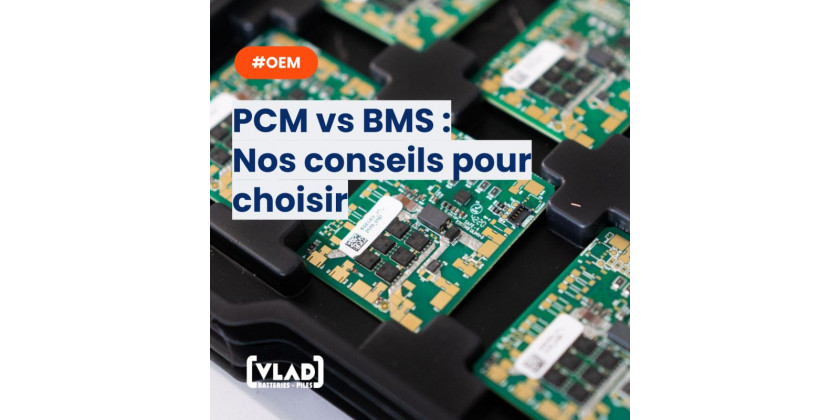
How to choose between a PCM and a BMS for your batteries?
Choosing between a PCM and a BMS for battery protection is not easy. Both technical solutions have advantages and disadvantages, but the final decision will depend mainly on the application of your product and the level of safety required. In this article, we go back to the differences between a PCM and a BMS to help you in your choice.
✅ PCM: advantages and disadvantages
The PCM (Protection Circuit Module) is a stand-alone hardware interface, ensuring the safety of the battery against extreme voltages, currents and temperatures. They allow basic balancing but do not offer the possibility to indicate a state of charge of the battery or to drive a charger.
✅ BMS: advantages and disadvantages
For its part, the BMS (Battery Management System) is equipped with a microcontroller, a communication bus and proprietary software. In addition to the functions already present on the PCM, it allows to monitor and indicate several battery signals: SOH, SOC ... It can control chargers and allows a complete and accurate diagnosis of your batteries. It also incorporates redundant security features.
What technology for my battery?
PCM and BMS are therefore very different and their choice will necessarily depend on the application of your product and the level of security required.
That said, the BMS can be perceived as an investment for the future: It allows the removal of doubts about the proper use of the battery in case of after-sales service, the feedback of information to the device to avoid the dry failure in the middle of work, the monitoring of a fleet of equipment and predictive maintenance.
Thus, although a BMS is more expensive, depending on the use case, gains and savings are key!
VLAD is also designing a BMM (Battery Management Module) card to intelligently manage several BMS simultaneously. With the benefit of increasing the available energy.
Do not hesitate to visit our Page dedicated to battery design to learn more!









































![[LES ECHOS] VLAD: greener and cheaper batteries by focusing on people and Industry 4.0](/modules//smartblog/images/59-home-small.jpg)
![[DEVICEMED Magazine] Battery Technologies: How to Select the Right Cell for You?](/modules//smartblog/images/56-home-small.jpg)

